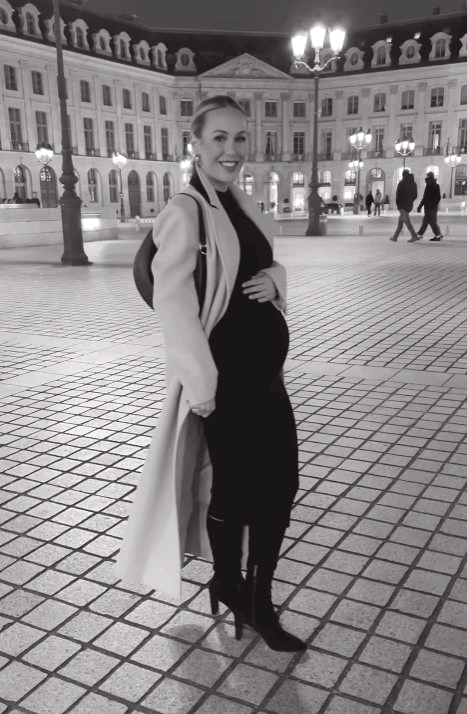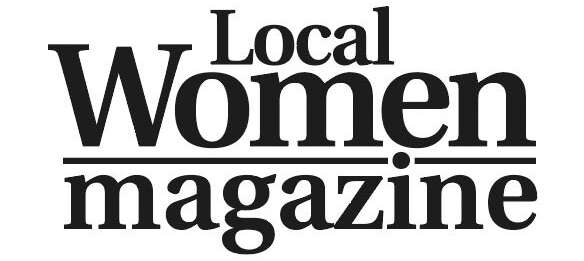Since revealing she is pregnant, Kate Ferdinand has been updating her social media with images of her growing bump.
However, while she is clearly delighted at welcoming a new baby, she has also spoken of the anxiety that comes with pregnancy after miscarriage.
The television personality suffered a miscarriage last year, shortly after discovering she was expecting a second child.
Discussing her current pregnancy on her Blended podcast, the former TOWIE star admitted she was relieved to finally confirm the news that she was expecting for a third time after weeks of apprehension due to her previous loss.

“It just makes the whole situation a little bit more anxious,” she said.
“You’re a little bit more worried and you’re really hoping that it’s going to be okay.”
She isn’t alone.
Pregnancy after baby loss brings with it a host of emotions.
There is the rush of excitement that comes with a positive pregnancy test and relief if you have experienced fertility problems, but the joy can be followed by feelings of guilt.
Often you are still grieving for the precious souls you never got to meet or processing trauma as a result of the loss.
Fear and worry can also be constant companions during pregnancy after baby loss – only really beginning to fade once your much-loved new arrival is safely in your arms.
Add pregnancy hormones into the mix and the whole experience can be stressful to say the least.
There is still a lot of silence around the issue of miscarriage – which is believed to affect at least one in four pregnancies – so we applaud Kate for talking about her crushing loss.
Even more so now that she has described the emotions she has experienced since finding out she is pregnant again.
Sadly, Sara from Doulas of NI has personal experience of miscarriage and knows the emotions during subsequent pregnancies can be overwhelming.
She explains: “These ups and downs often continue throughout pregnancy and even after the birth of the new baby.
“It’s important for people to know that it’s normal.
“It often helps to find others who went through the same to be able to talk openly about these feelings, to find support and places where one can feel they are not judged or dismissed for these feelings.
“Other people around us may not understand this whirlwind of emotions and suggest that one should be happy about the new pregnancy and that all will be fine.
“But someone who went through a miscarriage knows this is not always the case and they carry that awareness throughout the rest of their lives.
“One piece of advice I would give to parents if they are struggling is to reach out to the bereavement midwife in their respective trusts.
“They are there to support women and families who have experienced baby loss and they can provide support within the system and signposting during subsequent pregnancies too.
“Of course, as doulas, we also often support women and families through loss and pregnancies after loss and we provide that safe space where all emotions are valid and feelings, options and choices around the new pregnancy can be discussed freely.”

Organisations such as the Miscarriage Association are also a wonderful source of advice and support for parents affected by baby loss.
There is a range of things you can do to ease the experience of pregnancy after miscarriage.
Like Sara has suggested, it can be useful to find ongoing support, whether that is with a doula, local charity, bereavement midwife or by speaking to your GP who can refer you for counselling.
Having someone to talk to about your feelings and sharing your concerns and experience with others who have been there can help lighten the load.
It can also provide much-needed reassurance, particularly if you’re feeling vulnerable.
Some people also find it easier speaking to strangers than friends or family, who may not have been affected by miscarriage and may not fully appreciate the emotions associated with such a loss.
Taking steps to remember the baby you’ve lost can be really important and can also offer comfort.
There are many ways to do this – local health trusts run annual remembrance walks and events, plant a tree in your garden, make an entry for your baby in the hospital’s book of remembrance, light a candle on anniversaries, make a memory box with items such as scan photos, positive pregnancy test and maybe a blanket or teddy you had chosen for your baby.
You could buy a keepsake that you can either wear, such as a necklace or charm bracelet, or something you can display in your house, such as a painting or ornament.
Alternatively, make a donation to a charity or some people sponsor a child or baby
There are lots of events and challenges you can complete for the charity of your choice and you can take part in memory of the babies you have lost.
A physical challenge may not be particularly ideal during pregnancy but maybe your partner can take part with your support.
The early stages of pregnancy after a miscarriage can be particularly difficult as there is very little way of knowing whether it is progressing as normal.
Early scans can offer reassurance. Most NHS trusts will offer reassurance scans but if that isn’t possible, there are private clinics which will offer early pregnancy scans.
An important factor, however, is making sure you attend a reputable clinic where staff are appropriately trained to do them safely.
Most importantly, these are all only suggestions – there is no right or wrong way to cope with miscarriage.
If you need to talk, talk, but if you don’t want to, then don’t.
Do whatever you feel is right for you.
